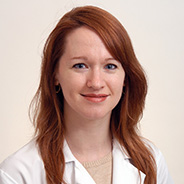Theme: Knowing the unknown and finer facets of Gastroenterology
Clinical Gastroenterology 2017
ConferenceSeries Ltd invites gastroenterology expertise, researchers, professors, scientific communities, therapists, counsellors, delegates, students, business professionals and executives to attend the “13th Clinical Gastroenterology & Hepatology Conference” which is going to be held on November 13-14, 2017 at Las Vegas, U.S.A.
ConferenceSeries Ltd International organizes 1000+ Global events inclusive of 300+ Conferences every Year across USA, Europe & Asia with support from 1000 more scientific societies and Publishes 500+ Open access journals which contains over 50000 eminent personalities, reputed scientists as editorial board members as you can have a look at Conference Series. Clinical Gastroenterology and Hepatology Conference is to provide speakers & organising committee members with a broad spectrum of themes in clinical gastroenterology and hepatology, including the diagnostic, endoscopic, interventional, and therapeutic advances in cancer, inflammatory diseases, functional gastrointestinal disorders, nutrition, absorption, and secretion.
Clinical Gastroenterology 2017 mainly focuses on the latest diagnostic and therapeutic techniques for gastrointestinal diseases. This clinical gastroenterology conference will deliver a comprehensive overview of the latest information, insights and practices in gastroenterology, hepatology, endoscopy and more. The agenda aims to provide a forum for all gastroenterologists, internal medicine specialists and hepatologists within the region to exchange ideas, discuss innovative methods and review new developments within the field of gastroenterology. The program addresses the hottest topics as well as new medications on the market and innovative surgical techniques discusses the latest research outcomes and technological advancements in the field and brings together leading gastroenterologists, surgeons, physicians, research scholars, students along with industrial and pharma professionals to exchange share their views on critical aspects of gastroenterology research. This gastroenterology conference brings together Presidents and Eminent Personalities to explore opportunities on emerging platforms in the field of gastrointestinal therapeutics.
Track: 1 Core Gastroenterology and Hepatology
Gastroenterology is the branch of medicine focused on the digestive system and its disorders. Gastroenterologists perform a number of diagnostic and therapeutic procedures including colonoscopy, endoscopy, endoscopic retrograde cholangiancreatography (ERCP), endoscopic ultrasound and liver biopsy. The Gastroenterology Core Curriculum was first published in 1996. Digestive diseases are conditions that affect the gut, liver and pancreas. Collectively they are a factor in 1 in 8 deaths in the world.
Track: 2 Vitamins, Nutrition and Gastroenterology
Nutrition is important in the management of gastrointestinal disease because the job of the intestinal track is to digest and absorb nutrients. The therapeutic approach to most gastrointestinal problems involves a combination of medication and nutritional therapy. Gastrointestinal disease can be broadly characterized as acute and chronic. Acute gastrointestinal conditions are most commonly caused by dietary indiscretion or the exacerbation of chronic gastrointestinal disease. Chronic gastrointestinal disease is frequently associated with a diagnosis of inflammatory bowel disease, an adverse food reaction or colitis. The nutritional approach to managing acute versus chronic gastrointestinal conditions is different which will be seen in Program of Gastro. Irritable bowel syndrome (IBS) is one of the most common and troublesome conditions for which individuals seek medical attention. Specific food practices may contribute to symptoms of constipation, diarrhea, bloating, gas, and abdominal pain will be seen in International Gastroenterology Conferences 2017
Track: 3 Pediatric Gastroenterology, Hepatology and Nutrition
Children are not just small adults. Their bodies are growing and have unique medical needs. They usually express their concerns differently than adults. They cannot always answer medical questions and are not always able to be patient and cooperative. The aim of the study of pediatric gastroenterology is to reduce infant and child rate of deaths, control the spread of infectious disease, promote healthy lifestyles for a long disease-free life and help ease the problems of children and adolescents. It can be acknowledged that this can be reached by learning the major and primary subject on gastroenterology. It includes the treatments involved for the betterment of gastrointestinal health in children.
Track: 4 Gastrointestinal Immunology
The gastrointestinal tract (GI tract) plays dual roles in human physiology: digestion and uptake of nutrients and the more daunting task of maintaining immune homeostasis (protecting the body from potentially harmful microbes, while inducing tolerogenic responses to innocuous food, commensals and self-antigens). The unique architecture of the GI tract and Viral hepatitis facilitates both of these functions; multiple levels of infolding results in an immense overall surface area that allows maximal nutrient absorption while housing the largest number of immune cells in the body. As many pathogens enter the body via the intestinal mucosa, it is vital the gut-associated lymphoid tissues can provide effective immune responses when necessary.
Track: 5 Gastrointestinal Endoscopy
An upper gastrointestinal endoscopy is a procedure that allows your doctor to look at the inside lining of your esophagus your stomach, and the first part of your small intestine. A thin, flexible viewing tool called an endoscope (scope) is used. The tip of the scope is inserted through your mouth and then gently moved down your throat into the esophagus, stomach and duodenum (upper gastrointestinal tract). In patients with OGIB, upper and lower GI tract endoscopies often are repeated before small-bowel evaluation because substantial initial endoscopic miss rates have been reported.
Track: 6 Gastrointestinal disorders in Pregnancy
Gastrointestinal (GI) disorders represent some of the most frequent complaints during pregnancy. Some women have GI disorders that are unique to pregnancy. Other pregnant patients present with chronic GI disorders that require special consideration during pregnancy. Understanding the presentation and prevalence of various GI disorders is necessary to optimize care for these patients. This article focuses on common GI symptoms during pregnancy and the common GI diseases that can be challenging to manage during pregnancy.
Track: 7 Neuro Gastroenterology and Motility
Neurogastroenterology is a subspecialty of gastroenterology that overlaps with neurology Neurogastroenterology encompasses the examine of the mind, the intestine, and their interactions with relevance to the understanding and control of gastrointestinal motility and functional gastrointestinal problems. Motility issues are the second classification of gastrointestinal disorder studied through neurogastroenterologists. Motility disorders are divided via what they affect, with 4 areas: The esophagus, the stomach, the small intestines, and the large intestines. clinical studies in neurogastroenterology focuses particularly on the study of common motility disorders consisting of gastroesophageal reflux ailment, the damage of the mucosa of the esophagus caused by rising stomach acid through the lower esophageal sphincter.
Track: 8 Gastrointestinal Cancers and Liver Diseases
Surgeons are continuing to improve their techniques for operating on colorectal cancers. They now have a better understanding of what makes colorectal surgery more likely to be successful, such as making sure enough lymph nodes are removed during the operation. Laparoscopic surgery is done through several small incisions in the abdomen instead of one large one, and it's becoming more widely used for some colon cancers. This approach usually allows patients to recover faster, with less pain after the operation. Gastroenterology have Laparoscopic surgery is also being studied for treating some rectal cancers, but more research is needed to see if it as effective as standard surgery. With robotic surgery, a surgeon sits at a control panel and operates very precise robotic arms to perform the surgery. This type of surgery is also being studied.
Track: 9 Endourology- Clinical Update
Flexible Ureterorenoscopy (FURS) is a preferred treatment for small stones within the kidney using a very thin flexible telescope that can be passed up from the female urethra or end of penis in a man, into the bladder and up the ureter (tube connecting the kidney to the bladder. With advancement in technology, improvement in endoscope and ancillary equipment, more complex procedures can be performed using flexible ureterorenoscopy. Advanced laparoscopic surgery involves surgery that is minimally invasive, using advanced surgical technologies to assist in surgery, providing the most desired patient outcome. Urology events minimally Invasive Surgery uses surgical techniques that only require 3-4 small ½” incisions, decreases blood loss, and encourages a shorter length of stay as well as a quicker patient recovery time. Many of our staff surgeons are involved in the use of advanced laparoscopic surgical procedures. Extracorporeal shock wave lithotripsy (ESWL) uses shock waves to break a kidney stone into small pieces that can more easily travel through the urinary tract and pass from the body. ESWL is usually an outpatient procedure.
Track: 10 Gastrointestinal Surgery
The gastrointestinal tract (GI tract) plays dual roles in human physiology: digestion and uptake of nutrients and the more daunting task of maintaining immune homeostasis (protecting the body from potentially harmful microbes, while inducing tolerogenic responses to innocuous food, commensals and self-antigens). The unique architecture of the GI tract and Viral hepatitis facilitates both of these functions; multiple levels of infolding results in an immense overall surface area that allows maximal nutrient absorption while housing the largest number of immune cells in the body. As many pathogens enter the body via the intestinal mucosa, it is vital the gut-associated lymphoid tissues can provide effective immune responses when necessary. However, inappropriate responses against innocuous food and commensal antigens lead to inflammatory disorders such as coeliac disease and inflammatory bowel disease (IBD) and Intestinal Surgery
Track: 11 Pancreatic and Biliary Cancer
Hepatobiliary cancers refer to liver cancer and cancers of the biliary tract that arise in the bile ducts, the tubes that carry bile from the liver or gallbladder to the small gut.Biliary tract cancers, also referred to as cholangiocarcinomas, refer to those malignancies occurring in the organs of the biliary machine, inclusive of pancreatic most cancers, gallbladder cancer, and cancer of bile ducts. The occurrence of most cancers of the pancreas increases with age. risk will increase after age 30 years, with most instances ocurring among the ages of 65 and 79. but, the disease has also been suggested in younger individuals, which include childrenA variation in prevalence and mortality among distinct non secular agencies has additionally been found. there may be an extended occurrence of pancreatic most cancers among Jews in new york town and in Israel and a decrease mortality rate is decrease amongst MormonsThe purpose of pancreatic carcinoma remains unsure, however numerous elements have been implicated. Cigarette smoking has been related to an increased hazard of pancreatic carcinoma
Track: 12 GI Microbiome
The human microbiome is composed of micro organism, archaea, viruses and eukaryotic microbes that reside in and on our bodies. those microbes have superb capacity to effect our physiology, both in fitness and in disease. They contribute metabolic capabilities, guard against pathogens, teach the immune gadget, and, through these basic features, have an effect on directly or indirectly most of our physiologic functions. The bacterial cells harbored inside the human gastrointestinal tract (GIT) outnumber the host’s cells with the aid of a element of 10 and the genes encoded through the micro organism resident inside the GIT outnumber their host’s genes with the aid of extra than a hundred times. these human digestive-tract related microbes are called the gut microbiome. The human gut microbiome and its function in both fitness and disorder has been the concern of large studies, establishing its involvement in human metabolism, nutrients, physiology, and immune characteristic.research has decided that we share our existence with around a hundred trillion organisms which comprise some thing known as our microbiome. For each one among our cells, there are 10 microbial cells dwelling on or inside our frame, supporting us to perform lifestyles-sustaining features that we couldn’t carry out without their assist.
Track: 13 Advances in Gastrointestinal Diseases
Short bowel syndrome (SBS)-associated intestinal failure is a highly disabling condition that impairs quality of life and social integration will be discussed in Gastroenterology conferences. Although the condition is not uniformly fatal, it might lead to serious, life-threatening complications. The basic goals of medical treatment are reflux to maintain electrolyte, fluid, and nutrient balances and to make modifications in disease management in order to avoid side effects. Various definitions have been proposed for SBS and intestinal failure within the medical literature, but many focus on different aspects of the conditions, leading to confusion. Gastrointestinal disorders encompass Crohn’s disease and ulcerative colitis, celiac disease, diverticulitis, irritable bowel syndrome, constipation, diarrhea, gastritis and gastroesophageal reflux, food allergies, parasites, dysbiosis, and a number of less common entities. Patients may present with abdominal pain, cramps, gas, bloating, food intolerances, or changes in bowel habits. There are often additional symptoms such as fatigue, muscle and joint pains, headaches, memory and other cognitive problems, depression, insomnia and reduced libido.
Track: 14 Advances in Liver Diseases
About 2 billion human beings, or one 1/3 of the world’s population, were infected with hepatitis B virus (HBV), and 350,000,000 to 400,000,000 have ongoing chronic HBV infection.1,2 The expected preva-lence of HBV infection in the united states of america degrees from 1.25 million to as many as 2 million infected people. persistent HBV contamination is a main motive of cirrhosis and hepatocellular carcinoma (HCC), with estimates that 15% to 30% of those inflamed vertically at delivery or early in lifestyles will die in advance from 1 of these 2 complications. The evolving experience with lengthy-time period remedy suggests that early initiation of antiviral therapy may interrupt this natural records of progression to those complications. Liver diseases are regularly underestimated no matter being pretty common and probably having severe or even existence-threatening effects, especially in continual cases.
In support of improving patient care, this activity has been planned and implemented by Conference Series, Ltd and Center for Education Development (CED). CED is jointly accredited by the Accreditation Council for Continuing Medical Education (ACCME), the Accreditation Council for Pharmacy Education (ACPE), and the American Nurses Credentialing Center (ANCC), to provide continuing education for the healthcare team.
Designation Statement
Center for Education Development designates the live format for this educational activity for AMA PRA Category 1 Credits™ and ANCC credit. Participants should only claim credit commensurate with the extent of their participation in the activity. Full accreditation information including disclosures, credit hours available and faculty information will be provided in the attendee handout onsite.
Our team includes more than 900 hands-on clinical development professionals worldwide with experience in gastroenterology protocols, many with clinical trial experience across multiple indications. Our close working relationships with investigators and sites ensure our ability to conduct a preliminary feasibility assessment quickly to predict enrolment and identify potential challenges.
Today, the US central bank decided to keep the Fed Funds Target Rate unchanged at 0% to 0.25%. The decision was basically justified by arguing that external headwinds for the US economy have increased in recent weeks. Also, the Fed expects lower oil prices to keep inflation very low for longer. In the words of the Fed in the FOMC statement: "Recent global economic and financial developments may restrain economic activity somewhat and are likely to put further downward pressure on inflation in the near term. This year, approximately 20 million people suffer from at least one digestive disorder, we will incur $18 billion in healthcare costs and lost productivity, and thousands of people will die unnecessarily.
Digestive diseases are expensive and debilitating. They burden our healthcare system with significant cost and negatively impact our economy. Wait times are growing while resources are shrinking. A significant proportion of digestive disease is preventable and much of it is treatable, particularly if diagnosed early. Given the alarming rate at which digestive diseases are increasing, the life-changing and often devastating impact digestive disease has on people remains largely under appreciated. In the past five years, we conducted more than 180 trials in gastroenterological indications involving more than 167,000 patients at approximately 6,400 sites.
Conference Highlights
- Endourology- Clinical Update
- Gastrointestinal Immunology
- Gastrointestinal Surgery
- GI Microbiome
- Pancreatic and Biliary Cancer
- Pediatric Gastroenterology, Hepatology & Nutrition
- Core Gastroenterology and Hepatology
- Vitamins, Nutrition and Gastroenterology
- Endoscopy
- Gastrointestinal disorders in Pregnancy
- Neuro Gastroenterology and Motility
- Gastrointestinal Cancers and Liver Diseases
To share your views and research, please click here to register for the Conference.
To Collaborate Scientific Professionals around the World
| Conference Date | November 13-14, 2017 | ||
| Sponsors & Exhibitors |
|
||
| Speaker Opportunity Closed | |||
| Poster Opportunity Closed | Click Here to View | ||
Useful Links
Special Issues
All accepted abstracts will be published in respective Our International Journals.
- Journal of Gastrointestinal & Digestive System
- Journal of Hepatology and Gastrointestinal disorders
- Clinical Investigation
Abstracts will be provided with Digital Object Identifier by













